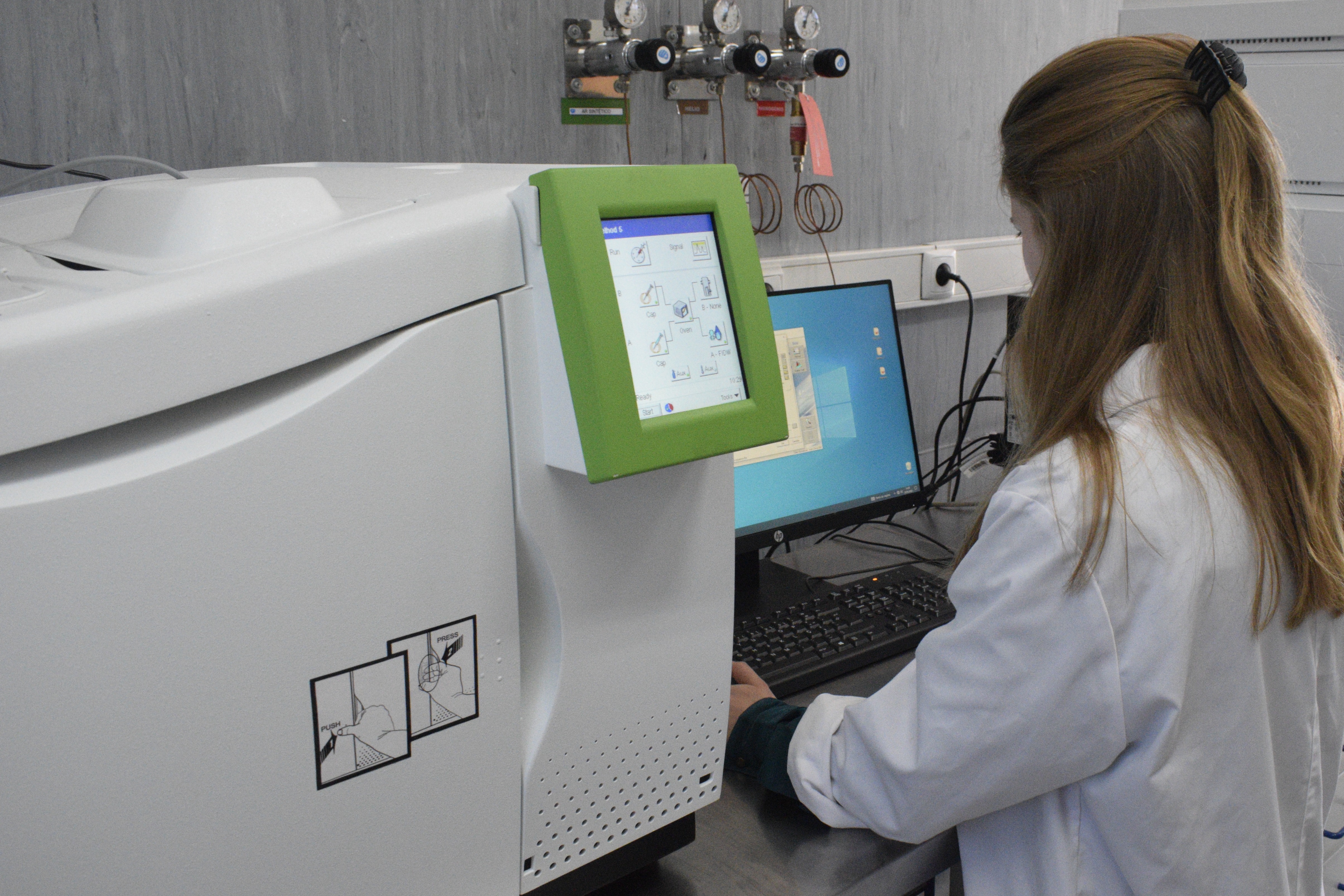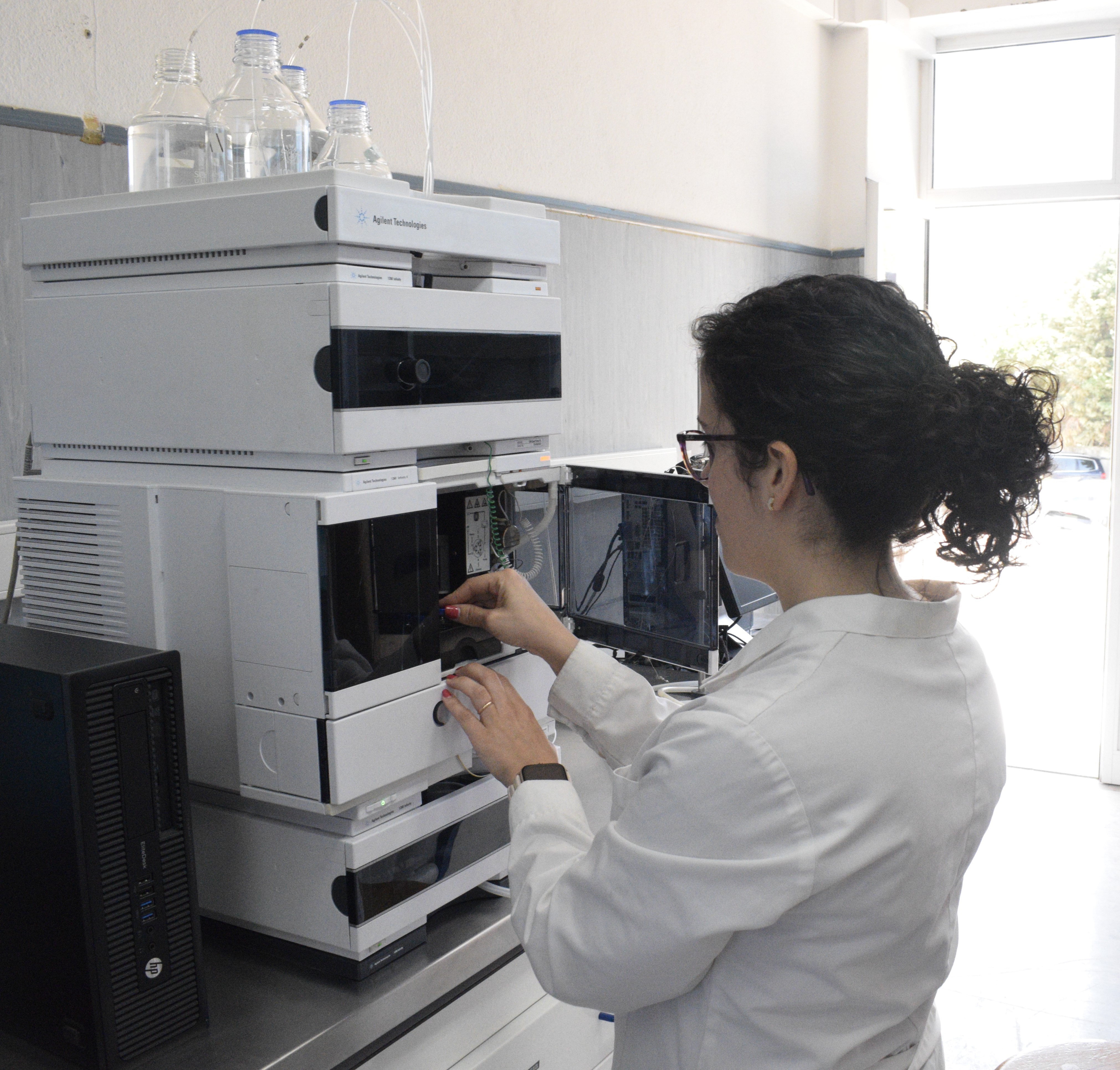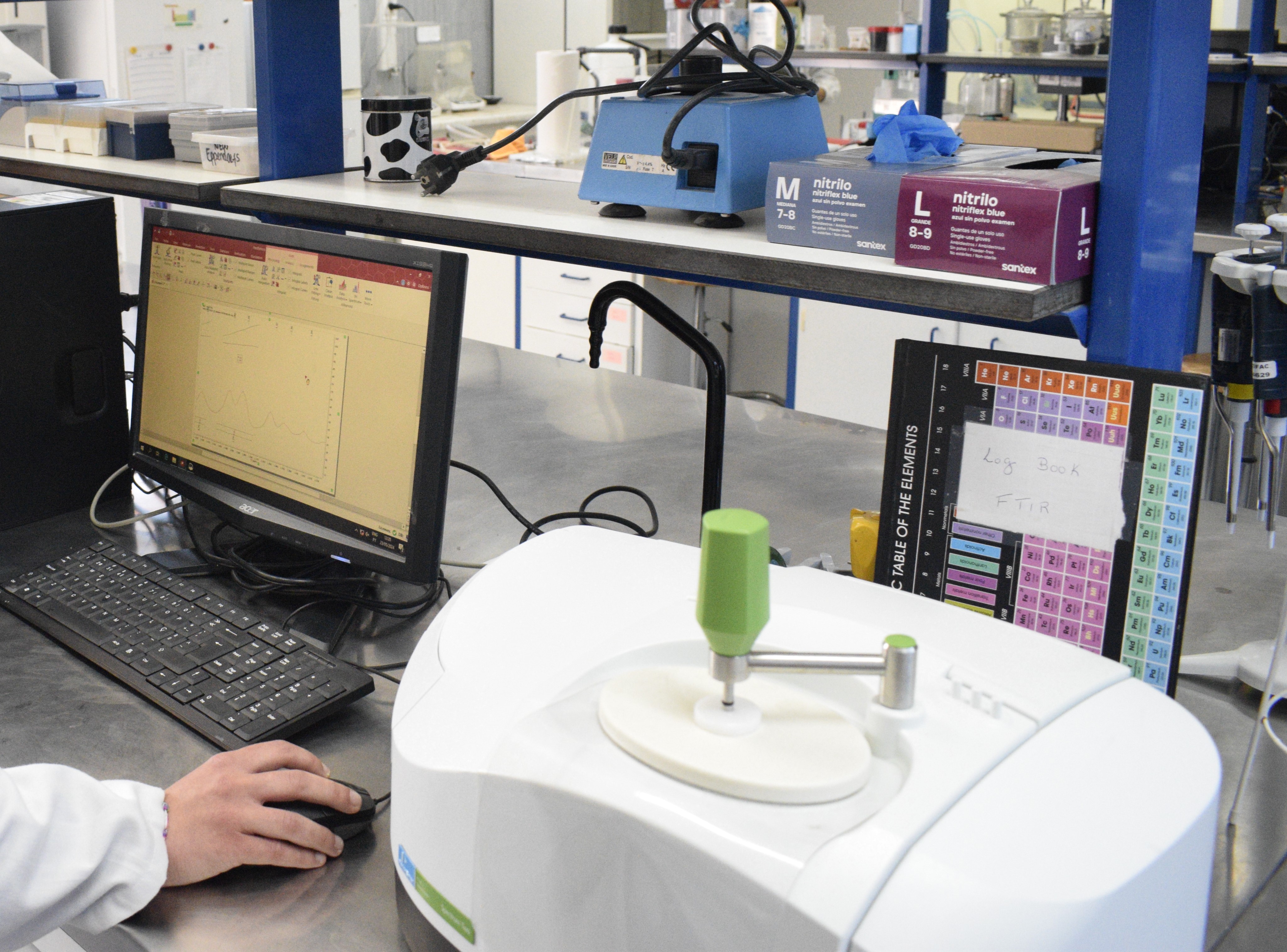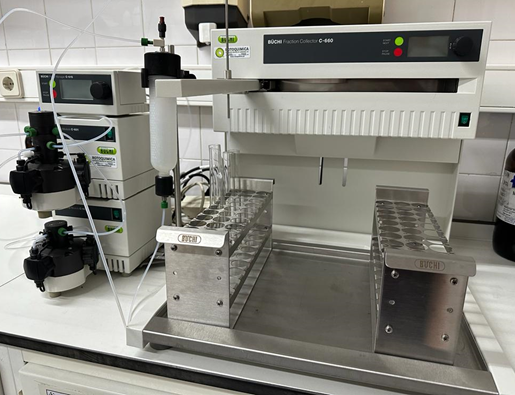Research Labs
Natural Bioatives & Circular Economy Lab
We explore natural products mainly from Plectranthus plants for antimicrobial, antioxidant, anticholinesterase, anti-inflammatory, and anticancer properties. We also prepare semi-synthetic new diterpenes, using computational modeling to target drug resistance.

In the Bio.Natural lab (Natural Bioactives & Circular Economy), our research focuses on three main approaches:
Natural Bioactives: We investigate natural products from Plectranthus (Lamiaceae) plants, examining their antimicrobial, antioxidant, anticholinesterase, anti-inflammatory, and anticancer properties. Additionally, we prepare and characterize new semi-synthetic derivatives, studying their structure-activity relationships and biological activities, particularly against antibiotic-resistant bacteria (MRSA and VRE) and targeting specific molecular mechanisms in cancer (such as protein kinase C and P-glycoprotein).
Computational Modeling: We employ computational tools to uncover disease mechanisms, aiming to develop novel molecules that reverse multidrug resistance in cancer (targeting P-glycoprotein, BCRP, MRP1), act on other cancer-related targets (PKC, p53-MDM2/MDMX, LOX/LOX-like 2), or correct protein misfolding in neglected diseases (cystic fibrosis, MCADD).
- Medicinal chemistry
- Natural Products chemistry
- Rational Drug Design
- Antimicrobial
- Computational chemistry
Natural Products chemistry/isolation/purification/characterization and Chromatographic analysis. Development, implementation and validation HPLC-DAD, FTIR, GC-FID and Pure Essential Flash Chromatography System (BUCHI Chromatography).
Screening Antimicrobial Activity via Wells Diffusion and Microdilution Methods Against Gram-Positive, Gram-Negative Bacteria, and Yeasts, Including Exploratory Studies on the Effects of Various Samples on Microorganism Growth Curves and Viability.
Scientific and Technological Platform for High throuput virtual screenin and Hit to lead development and early drug discovery research.
Linux high throughput cluster and workstations with state-of-the-art NVIDIA GPUs: 3 workstations, 3 NVIDIA GPU, 56 core. Network Attached Storage (NAS) (6x4 TB disks in raid 6 (up to 2 disks to fail); total capacity of 16 TB) and CBIOS NAS (4x12 TB RAID1: mirrored; total capacity of 24 TB).
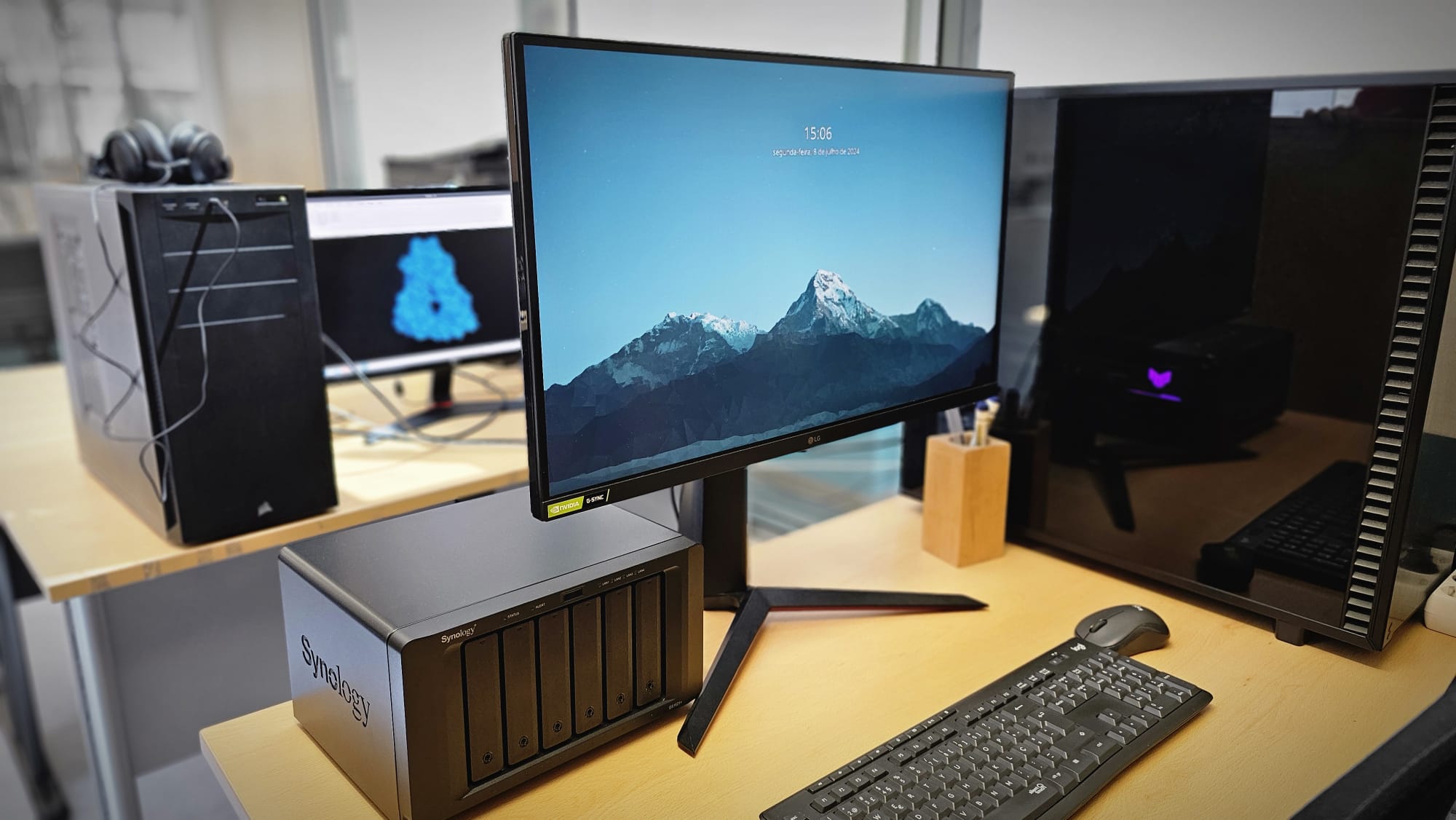
- Ricardo Calhelha, Soraia Falcão, Lilian Barros* Instituto Politécnico de Bragança, Portugal., Instituto Politécnico de Bragança, Portugal.
- Carlos A. M. Afonso, Instituto de Investigacão do Medicamento, Faculdade de Farmácia, Universidade de Lisboa, Portugal
- Maria Manuel B Marques, New University of Lisbon, Portugal
- Przemysław Sitarek, Medical University of Lodz, Poland
- Tomasz Kowalczyk, University of Lodz, Poland
- Ahmed A. Hussein, Cape Peninsula University of Technology, South Africa
- Amr Hassan, University of Sadat City, Egypt
- Thomas Efferth, Johannes Gutenberg University, Germany
- Ana María Díaz-Lanza, Universidad de Alcalá de Henares, Spain
- Lucilia Saraiva, Faculdade de Farmácia, Universidade do Porto, Portugal
- Alfonso T. García‑Sosa, University of Tartu, Estonia
- Salvatore Princiotto, University of Milan, Italy
- Nuray Erin, Akdeniz University, Turkey
- Amr Hassan, University of Sadat City, Egypt
- Milica Pesic, University of Belgrade, Serbia
- Ana Cipak Gašparovi´, Rudjer Boskovic Institute, Zagreb, Croatia
- Elisabete Silva, Faculdade de Ciências da Universidade de Lisboa, Portugal
- Mattia Mori, University of Siena, Italy
- Nuno Candeias, University of Aveiro, Portugal
- Vânia André, Instituto Superior Tecnico, Universidade de Lisboa, Portugal
- Bruno Cardoso, Universidade Católica Portuguesa, Portugal
- Francisco Estévez, Universidad de Las Palmas de Gran Canaria, Spain.
- SOMAÍ Pharmaceuticals, Portugal
- Ingredient Odyssey SA – EntoGreen, Portugal
- Scents from Nature, Portugal
- Tecnocosmética – Produtos cosméticos, Lda, Portugal
- Essoils - Pure & Natural Essential Oils Company, Lda, Portugal
- Nutriboty, Angola and Portugal
- Pinhais & Cia, Lda, Portugal

